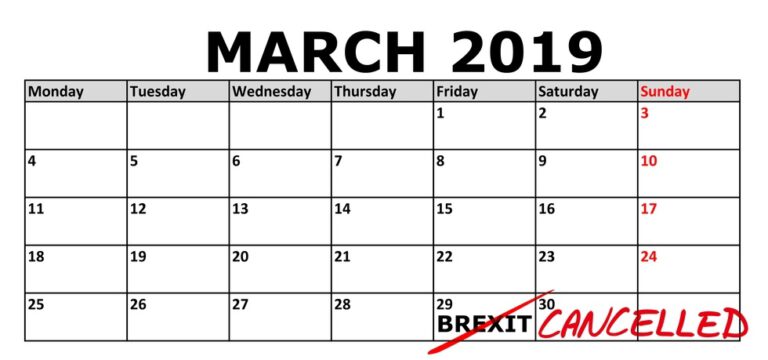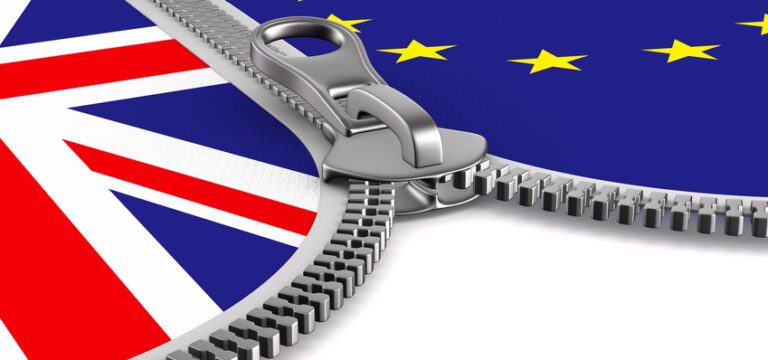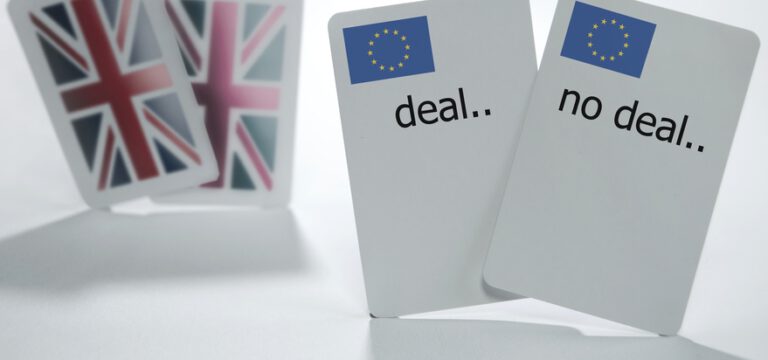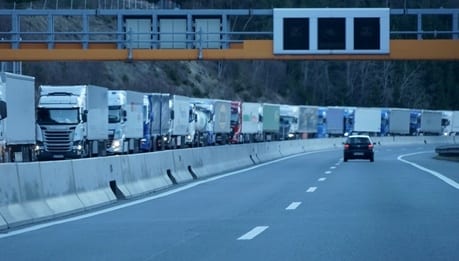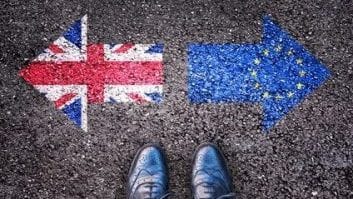is the withdrawal of the United Kingdom (UK) from the European Union (EU), which is scheduled to take place on 29 March 2019 at 11 pm UK time, when the period for negotiating a Withdrawal Agreement will end unless an extension is agreed. On 14 March 2019, the House of Commons voted by a majority of 211 votes for Theresa May to ask the EU for such an extension. Brexit follows the referendum of 23 June 2016 when 51.9 per cent of voters chose to leave the EU. Withdrawal has been advocated by Eurosceptics, both left-wing and right-wing, while pro-Europeanists, who also span the political spectrum, have advocated continued membership.
The broad consensus among economists is that Brexit will likely reduce the UK’s real per capita income in the medium term and long term, and that the Brexit referendum itself had damaged the economy. Studies on effects since the referendum show a reduction in GDP, trade and investment, as well as household losses from increased inflation. Brexit is likely to reduce immigration from European Economic Area (EEA) countries to the UK, and poses challenges for UK higher education and academic research. As of November 2018, the size of the “divorce bill”—the UK’s inheritance of existing EU trade agreements—and relations with Ireland and other EU member states remains uncertain. The precise impact on the UK depends on whether the process will be a “hard” or “soft” Brexit. Analysis by HM Treasury has found that there is no Brexit scenario that is expected to improve the UK economic condition.
Terminology and etymology
In the wake of the referendum of 23 June 2016, many new pieces of Brexit-related jargon have entered popular use.
Backstop
A term referring to the government’s proposal to keep Northern Ireland in some aspects of the European Union Customs Union and of the European Single Market to prevent a hard border in Ireland, so as not to compromise the Good Friday Agreement. (See Irish border question.) In principle, it is a temporary measure while the United Kingdom identifies and develops a technology that operates customs, excise and other controls as between the UK and the EU, without any evident border infrastructure, and there must be compliance with section 10 of the European Union (Withdrawal) Act 2018, on “Continuation of North-South co-operation and the prevention of new border arrangements.”
Blind/Blindfold Brexit
Coined in September 2018 to describe a scenario where the UK leaves the EU without clarity on the terms of a future trade deal. EU and British negotiators would then have until 31 December 2020 to sign off on a future trade deal, during which time the UK will effectively remain a member of the EU, but with no voting rights.
Brexit
Brexit (like its early variant, Brixit) is a portmanteau of “British” and “exit”. The first attestation in the Oxford English Dictionary is a Euractiv blog post by Peter Wilding on 15 May 2012. It was coined by analogy with “Grexit”, attested on 6 February 2012 to refer to a hypothetical withdrawal of Greece from the eurozone (and possibly also the EU). At present, Brexit is impending under the EU Treaties and the UK Acts of Parliament, and the current negotiations pursuant thereto.
Brexiteer/Brexiter
Those supporting Brexit are sometimes referred to as “Brexiteers”, or “Brexiters”. Alternatively, the term “Leavers” has also been used in media outlets.
Canada plus
This is shorthand for a model where the United Kingdom leaves the European Union and signs a free trade agreement. This would allow the UK to control its own trade policy with non-EU countries, but would require rules of origin agreements to be reached for UK–EU trade. It is likely this would lead to trade being less “free” than joining the EFTA, and result in additional border controls being required, which is an issue of contention, particularly in Ireland. The Canadian – European Union deal took seven years to negotiate, but Brexiteers argue it would take much less time between the UK and EU as the two participants already align on regulatory standards.
Chequers plan
The short name given by the media to The framework for the future relationship between the United Kingdom and the European Union, the government’s white paper drawn up at Chequers and published on 12 July 2018 which set out the sort of relationship the UK government wanted with the EU after Brexit. On 22 November 2018 the government published the updated draft.
Divorce bill
It is expected that the UK will make a contribution toward financial commitments that it approved while still a member of the EU, but are still outstanding. In the first phase of negotiations the total amount was referred to as the single financial settlement, or just the settlement. Especially in the media, this has been called an exit bill or divorce bill, while the EU talk of settling the accounts. While serving as Brexit Secretary, Dominic Raab said the UK will not pay its financial settlement to the EU in a no-deal scenario. The Withdrawal Agreement published in November 2018 states that the financial contribution will be £39 billion.
Hard and soft Brexit
“Hard Brexit” and “soft Brexit” are unofficial terms that are commonly used by news media to describe the prospective relationship between the UK and the EU after withdrawal. A hard Brexit (also called a no-deal Brexit) usually refers to the UK leaving the EU and the European Single Market with few or no deals (trade or otherwise) in place, meaning that trade will be conducted under the World Trade Organization’s rules, and services will no longer be provided by agencies of the European Union (such as aviation safety). Soft Brexit encompasses any deal that involves retaining membership in the European Single Market and at least some free movement of people according to European Economic Area (EEA) rules. Theresa May’s “Chequers plan” embraced some aspects of a “soft” Brexit. Note that the EEA and the deal with Switzerland contain fully free movement of people, and that the EU has wanted that to be included in a deal with UK on fully free trade.
Meaningful vote
A “meaningful vote” is a vote under section 13 (2) of the European Union (Withdrawal) Act 2018, requiring the government to arrange for a motion proposing approval of the outcome of negotiations with the EU to be debated and voted on by the House of Commons before the European Parliament decides whether it consents to the withdrawal agreement being concluded on behalf of the EU in accordance with Article 50(2) of the Treaty on European Union.
Managed no-deal
“Managed no-deal Brexit” or “managed no deal Brexit” was increasingly used near the end of 2018, in respect of the complex series of political, legal and technical decisions needed if there is no withdrawal agreement treaty with the EU when the UK exits under the Article 50 withdrawal notice.
Norway model or Norway plus
This is shorthand for a model where the United Kingdom leaves the European Union but becomes a member of the European Free Trade Association (EFTA) and the European Economic Area, possibly with the addition of a customs union (“plus”). EFTA and EEA membership would allow the UK to remain in the single market but without having to be subject to the Common Fisheries Policy, Common Agricultural Policy, and the European Court of Justice. The UK would be subject to the EFTA court, which largely shadows the ECJ, have to transfer a large amount of EU law into UK law, and have little say on shaping EU rules (some of which the UK will be compelled to take on). The UK would also have to allow freedom of movement between the EU and UK, something that was seen as a key issue of contention in the referendum.
Remainer
Those in favour of the UK remaining in the EU are sometimes referred to as “Remainers”. The derogatory term “Remoaner” (a portmanteau of “remainer” and “moaner”) is sometimes used by pro-Brexit media outlets.

